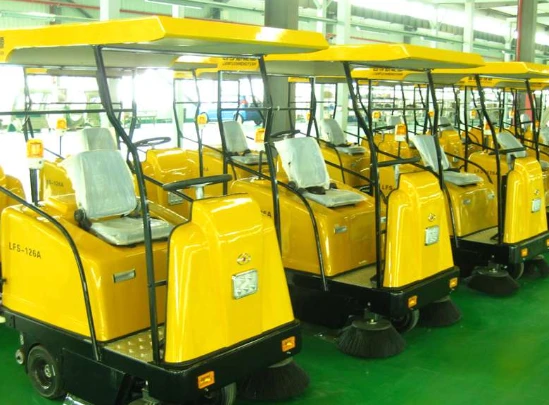
-
 Afrikaans
Afrikaans -
 Albanian
Albanian -
 Amharic
Amharic -
 Arabic
Arabic -
 Armenian
Armenian -
 Azerbaijani
Azerbaijani -
 Basque
Basque -
 Belarusian
Belarusian -
 Bengali
Bengali -
 Bosnian
Bosnian -
 Bulgarian
Bulgarian -
 Catalan
Catalan -
 Cebuano
Cebuano -
 China
China -
 China (Taiwan)
China (Taiwan) -
 Corsican
Corsican -
 Croatian
Croatian -
 Czech
Czech -
 Danish
Danish -
 Dutch
Dutch -
 English
English -
 Esperanto
Esperanto -
 Estonian
Estonian -
 Finnish
Finnish -
 French
French -
 Frisian
Frisian -
 Galician
Galician -
 Georgian
Georgian -
 German
German -
 Greek
Greek -
 Gujarati
Gujarati -
 Haitian Creole
Haitian Creole -
 hausa
hausa -
 hawaiian
hawaiian -
 Hebrew
Hebrew -
 Hindi
Hindi -
 Miao
Miao -
 Hungarian
Hungarian -
 Icelandic
Icelandic -
 igbo
igbo -
 Indonesian
Indonesian -
 irish
irish -
 Italian
Italian -
 Japanese
Japanese -
 Javanese
Javanese -
 Kannada
Kannada -
 kazakh
kazakh -
 Khmer
Khmer -
 Rwandese
Rwandese -
 Korean
Korean -
 Kurdish
Kurdish -
 Kyrgyz
Kyrgyz -
 Lao
Lao -
 Latin
Latin -
 Latvian
Latvian -
 Lithuanian
Lithuanian -
 Luxembourgish
Luxembourgish -
 Macedonian
Macedonian -
 Malgashi
Malgashi -
 Malay
Malay -
 Malayalam
Malayalam -
 Maltese
Maltese -
 Maori
Maori -
 Marathi
Marathi -
 Mongolian
Mongolian -
 Myanmar
Myanmar -
 Nepali
Nepali -
 Norwegian
Norwegian -
 Norwegian
Norwegian -
 Occitan
Occitan -
 Pashto
Pashto -
 Persian
Persian -
 Polish
Polish -
 Portuguese
Portuguese -
 Punjabi
Punjabi -
 Romanian
Romanian -
 Russian
Russian -
 Samoan
Samoan -
 Scottish Gaelic
Scottish Gaelic -
 Serbian
Serbian -
 Sesotho
Sesotho -
 Shona
Shona -
 Sindhi
Sindhi -
 Sinhala
Sinhala -
 Slovak
Slovak -
 Slovenian
Slovenian -
 Somali
Somali -
 Spanish
Spanish -
 Sundanese
Sundanese -
 Swahili
Swahili -
 Swedish
Swedish -
 Tagalog
Tagalog -
 Tajik
Tajik -
 Tamil
Tamil -
 Tatar
Tatar -
 Telugu
Telugu -
 Thai
Thai -
 Turkish
Turkish -
 Turkmen
Turkmen -
 Ukrainian
Ukrainian -
 Urdu
Urdu -
 Uighur
Uighur -
 Uzbek
Uzbek -
 Vietnamese
Vietnamese -
 Welsh
Welsh -
 Bantu
Bantu -
 Yiddish
Yiddish -
 Yoruba
Yoruba -
 Zulu
Zulu
Fiberglass Pipe Systems and Components for Marine Construction and Shipbuilding Applications
The Utility and Advantages of Fiberglass Pipes and Fittings in Shipbuilding
In the shipbuilding industry, the selection of materials is crucial for ensuring performance, longevity, and safety. Among the myriad materials available, fiberglass pipes and fittings have emerged as a preferred choice due to their unique properties and advantages. This article explores the utility of fiberglass pipes and fittings in shipbuilding, highlighting their benefits and applications.
Fiberglass, or reinforced plastic, consists of a matrix of thermosetting resin reinforced with glass fibers. This composition results in a lightweight yet incredibly strong material, ideal for maritime applications. One of the most significant advantages of fiberglass pipes and fittings is their corrosion resistance. In a marine environment, vessels are subjected to saltwater, which can be highly corrosive to metals. Fiberglass does not corrode, ensuring a longer lifespan for pipes and fittings when exposed to harsh sea conditions. This property is not only economically beneficial but also crucial for maintaining the integrity of the ship's systems.
Weight is another critical factor in shipbuilding. Traditional materials like steel and copper can add considerable weight to a vessel, affecting fuel efficiency and handling. Fiberglass pipes, being lighter yet robust, significantly reduce the overall weight of the ship. This weight reduction allows for greater cargo capacity and improved fuel efficiency, contributing to lower operational costs over time.
Fiberglass pipes and fittings also provide excellent thermal insulation properties. This is particularly advantageous in ship plumbing systems, where temperature control is vital. The insulating properties reduce heat loss or gain, enhancing energy efficiency and helping to maintain the desired temperature for water, fuel, or other fluids.
fiberglass pipes and fittings for ship building

Moreover, the flexibility of fiberglass allows for easier installation and modification. Fiberglass can be molded into various shapes, making it adaptable for different ship designs and systems. This versatility means that shipbuilders can create efficient layouts without being constrained by the rigidities of metal piping. Furthermore, fiberglass is non-conductive, minimizing the risk of electrical hazards, which is an essential safety consideration in shipbuilding.
The installation process is also simplified with fiberglass, as it does not require specialized tools or extensive labor. The joining methods for fiberglass pipes and fittings are generally straightforward, often involving glue or simple mechanical fittings. This eases the construction process and can lead to significant reductions in labor costs and time.
Fire resistance is another crucial factor in ship safety. Fiberglass materials can be engineered to meet specific fire safety standards. When treated appropriately, they can help slow down the spread of flames, providing additional minutes for evacuation and response in case of a fire, which is essential on board where space is confined.
Lastly, environmental considerations are becoming increasingly important in modern shipbuilding. Fiberglass materials are often more environmentally friendly than traditional options due to their longevity and reduced maintenance needs, which translate to fewer resources consumed over time. The recyclability of fiberglass also helps in minimizing the environmental impact at the end of the vessel's life.
In conclusion, the use of fiberglass pipes and fittings in shipbuilding offers numerous benefits, including corrosion resistance, reduced weight, improved thermal insulation, flexibility, ease of installation, fire resistance, and environmental sustainability. As the industry continues to innovate and prioritize efficiency and safety, fiberglass is poised to play a vital role in the future of maritime construction, paving the way for vessels that are not only robust but also adaptable to the challenges of modern navigation.
Latest news
-
Exploring the Benefits of Top Hammer Drifter Rods for Enhanced Drilling PerformanceNewsJun.10,2025
-
High-Precision Fiberglass Winding Machine for GRP/FRP Pipe Production – Reliable & Efficient SolutionsNewsJun.10,2025
-
FRP Pipes & Fittings for Shipbuilding - Corrosion-Resistant & LightweightNewsJun.09,2025
-
Premium FRP Flooring Solutions Durable & Slip-ResistantNewsJun.09,2025
-
Premium Fiberglass Rectangular Tanks Durable & Lightweight SolutionNewsJun.09,2025
-
Tapered Drill String Design Guide Durable Performance & UsesNewsJun.09,2025









